Press Release 17 July 2025
Third Year of Octopus STEM x SPORTS Scheme Successfully Concludes
Combining Sports and Technology
Nurturing Nearly 700 Future Technology Leaders in Three Years
(17 July 2025, Hong Kong) The “Octopus STEM x SPORTS Scheme”, jointly launched by St. James’ Settlement (“SJS”) and Octopus Cards Limited (“Octopus”) and supported by matching sponsorship from the Social Welfare Department’s Partnership Fund for the Disadvantaged, successfully concluded with its final graduation ceremony on 12 July 2025. More than 250 participating teachers and students from 12 primary and secondary schools joined officiating guests to celebrate the joy of graduation and share their learning journeys, marking a successful conclusion to the three-year programme. Since 2022, the Scheme has benefited nearly 700 underprivileged students through sports activities, training courses, workshops, fun day camps that combine STEM and sports, enabling them to grow up healthily while developing skills and personality necessary for the development of a digital society.
In addition to the presentation of certificates and awards, six groups of award-winning students presented their innovative sports technology projects. The event also showcased outstanding works from all participating students. During the ceremony, students experienced various innovative sports and e-sports equipment, including electronic dodgeball and augmented reality (AR) shooting.
This year, the Scheme continued its mission of integrating sports and STEM education, aiming to cultivate students' perseverance, teamwork, and leadership skills. Through workshops and Innovative Sports Fun Days, the programme demonstrated practical applications of STEM knowledge in everyday life, inspiring students’ creativity and problem-solving abilities. For instance, an award-winning group observed that outdoor rowing is often affected by weather conditions, posing challenges for beginners. Meanwhile indoor rowing machines are relatively noisy and lack portability. Using a virtual reality (VR) creation platform, the group designed a personalised VR rowing game featuring customised scenes, such as underwater and forest, making rowing more accessible to the public while showcasing the students’ keen observation and creativity.
Mr. Tim Ying, Chief Executive Officer, Octopus, said “At Octopus, we believe innovation starts with our youth. This scheme uniquely combines technology and sports to teach critical skills, and the results speak for themselves. When students use virtual reality (VR) to solve a real-world problem like making rowing more accessible, you know we are nurturing the kind of creative thinking Hong Kong needs. Our 18-year partnership with St. James' Settlement reflects our commitment to giving back to the community by empowering future leaders."
Ms. Josephine Lee, Chief Executive Officer, SJS, said, “We extend our gratitude to Octopus Cards Limited and the Partnership Fund for the Disadvantaged of the Social Welfare Department for their unwavering support of the Scheme over the past three years. The Scheme has inspired students' creativity, introduced them to emerging technologies, and encouraged them to apply their knowledge to develop innovative projects that address existing challenges, they also learned to approach problems from multiple perspectives. Over the past three years, we have witnessed students’ remarkable achievements. Looking ahead, we hope that more students will engage in STEM learning and unlock their limitless potential.”
Integrating STEM Knowledge into Six Sports
In addition to retaining the most popular sport last year - fencing, the Scheme introduced five new sports: karate, snooker, basketball, football, and indoor rowing. These provided students with broader exposure to various sports and opportunities to apply STEM knowledge to address existing sports limitations or enhance athlete training. For example, students focusing on snooker used Micro:bit (microcomputer) connected with ultrasonic and colour sensors to develop an automatic scoring programme. By understanding the principle of how different wavelengths of light are reflected by various colours, they successfully created a snooker table with automated scoring functionality. Meanwhile, students studying karate developed an artificial intelligence (AI) application analysing karate postures to assist judges and support athletes improve techniques during practice.
Broadening Students’ Horizons in Technology though Innovative Sports Fun Days
To further enhance students’ exposure to STEM, the Scheme organised several sports training experiences, including Formula Racing and golf through “Innovative Sports Fun Days” at Cyberport, supported by Octopus volunteers. With their guidance, students also learned how to create mobile games and virtual reality (VR) applications and had the opportunity to design mini- games and virtual scenes, deepening their understanding of innovation applications across various fields.
Photo Caption
Photo 1: Teachers and students from participating schools and representatives from the organisers joined the third year of “Octopus STEM x SPORTS Scheme” graduation ceremony.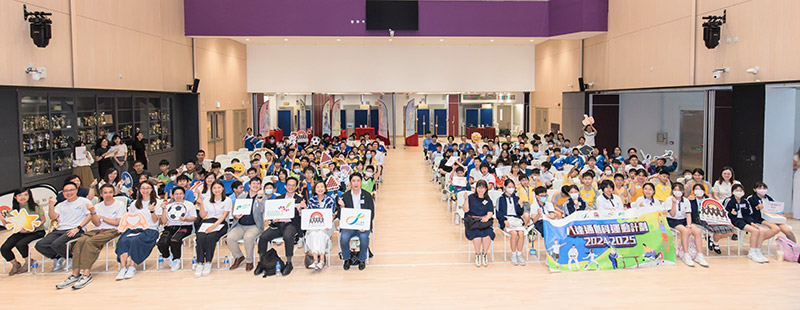
Photo 2: Students shared their learning, creative ideas and outstanding works with Mr. Tim Ying, Chief Executive Officer, Octopus (second left) and Ms. Josephine Lee, Chief Executive Officer, SJS (first left).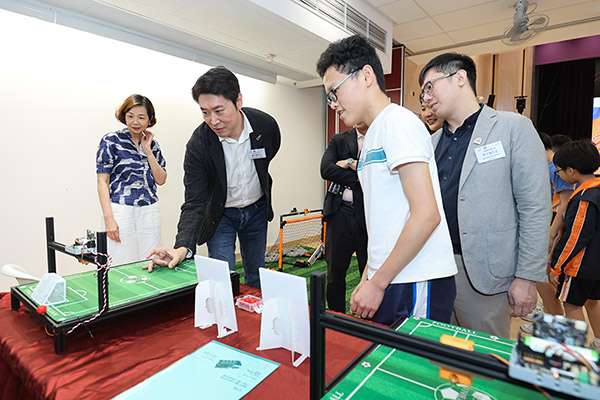
Photo 3 and 4: Octopus volunteers and participating primary and secondary school students visited the Cyberport and learned how to create mobile games and virtual reality (VR) applications.
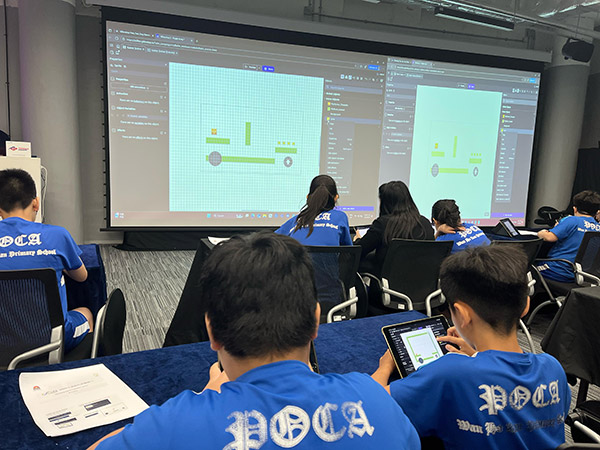
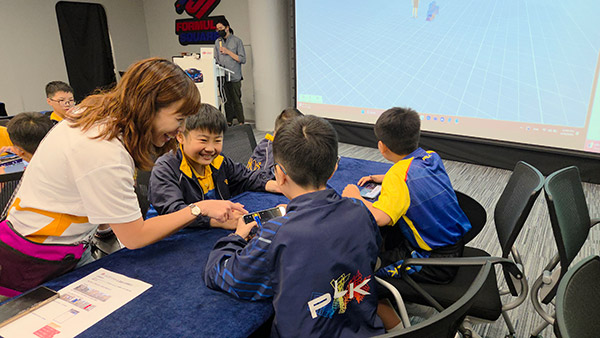
Photo 5 and 6: Students enthusiastically participated in several sports training experience, including Formula Racing and golf during the “Innovative Sports Fun Days”.
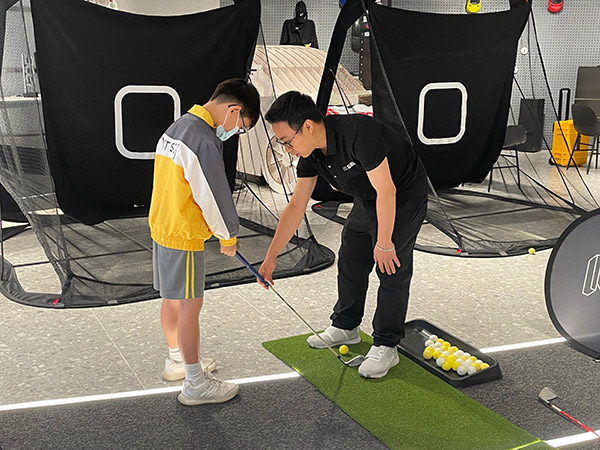
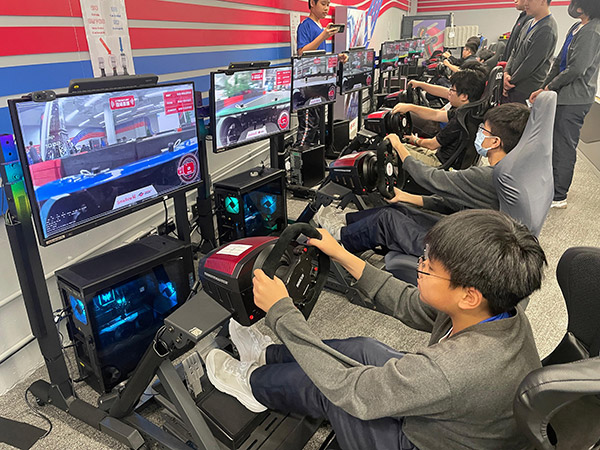
Information of awarded groups
| Product and description | Photos |
|---|---|
| Karate group: Using App Inventor to develop an application powered by artificial intelligence (AI) to analyse karate postures, assisting judges in evaluating athlete's movements and supporting training. Also utilising Micro:bit (microcomputer), sensors, and 3D printing techniques to create a heart rate detector, enabling athletes to adjust the training intensity accordingly. |
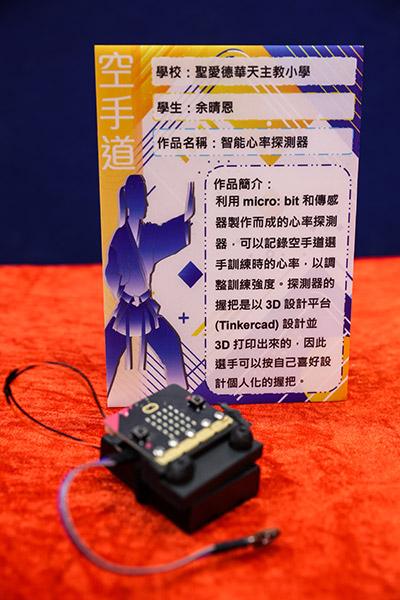 |
| Snooker group: Using a Micro:bit (microcomputer) connected with ultrasonic and colour sensors to program an automatic scoring system. Environmentally-friendly materials, such as cardboard, were also used to create a low-cost solution that enables athletes to train independently. |
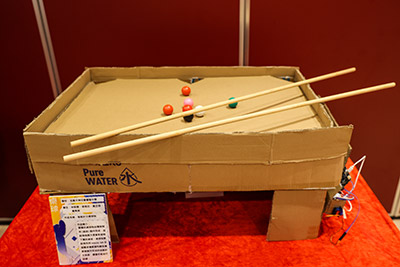 |
| Basketball group: Using environmentally-friendly materials such as cartons and plastic bottles, along with Micro:bit (microcomputer) and sensors, to create an automatic basketball scoring system and basketball machine, improving scoring accuracy. |
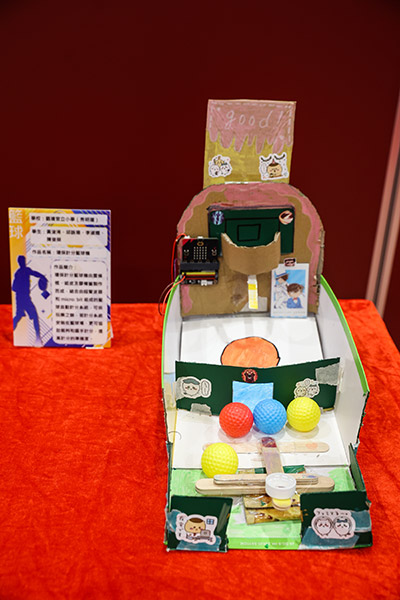 |
| Football group: Using a Micro:bit (microcomputer) and 3D printing techniques to develop a reaction light training system to help athletes improve their reaction speed. Additionally, by integrating an artificial intelligence (AI) camera, they created an AI goalkeeper to assist players in enhancing the accuracy of their shots. |
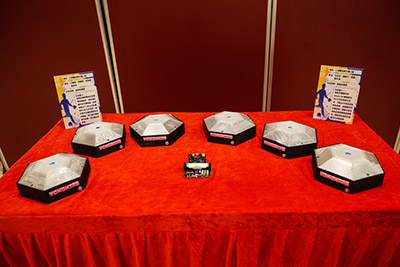 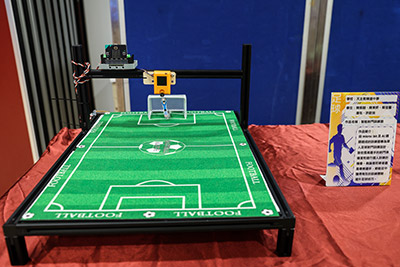 |
| Fencing group: To address the high cost of fencing equipment, the team used the virtual reality (VR) creation platform Delightex (formerly known as Cospaces) to develop a VR fencing game, increasing public access to fencing experiences while reducing the burden on beginners to purchase extensive equipment. |
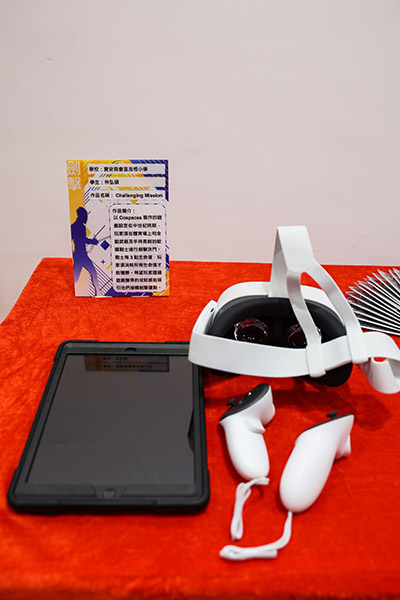 |
| Indoor rowing group: To address the challenges of outdoor rowing being easily affected by weather and the limitations of indoor rowing machines in terms of portability and noise, the team used the virtual reality (VR) creation platform Delightex (formerly known as Cospaces) to develop a VR rowing game, aiming to attract public interest in rowing by offering an immersive and accessible experience. |
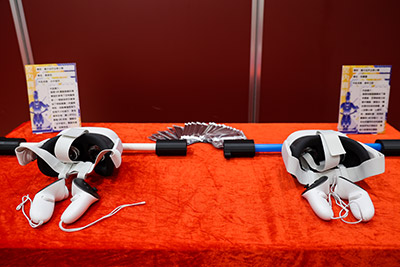 |
- End -